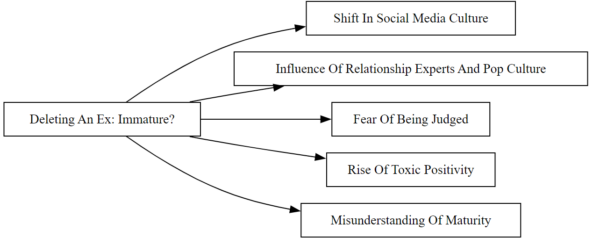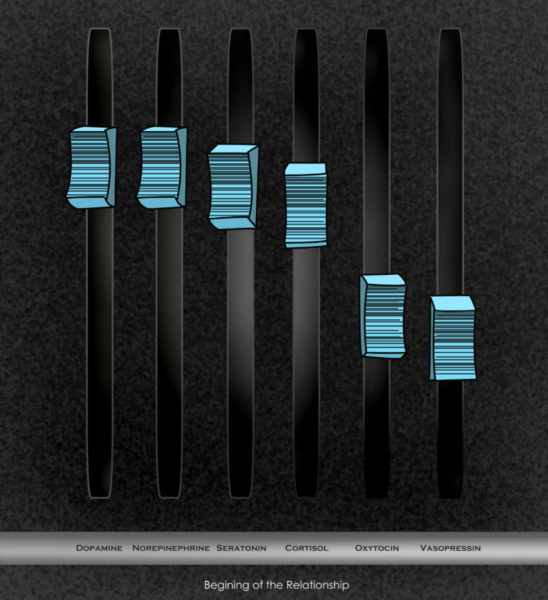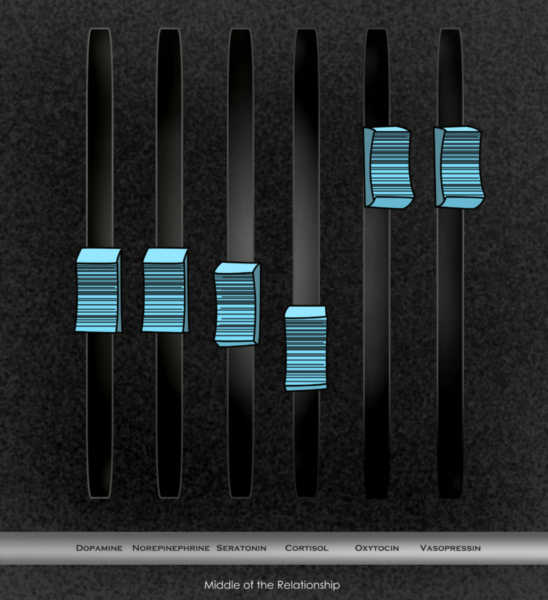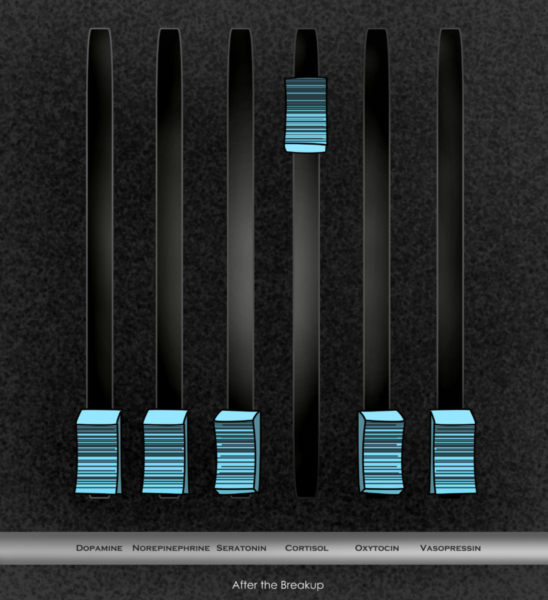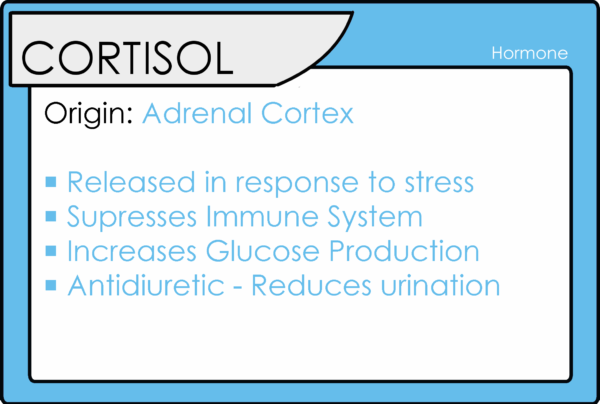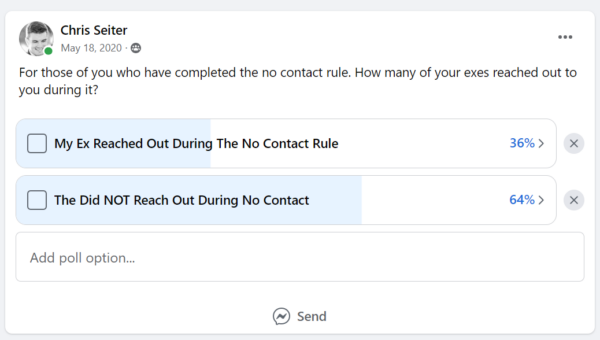There’s this growing wave of individuals who believing that deleting an ex from social media (or even blocking their phone number) is immature.
In general, I would say that deleting an ex is NOT immature if it’s done for healing in the post breakup period. However, deleting them from social media will take away certain elements that you can use if you were to attempt to get them back.
But I think the burning question I have is how the heck this narrative started? Like who actually came up with this idea that it’s immature to delete an ex?
Well today that’s what we are going to talk about,
- Where I Think This Narrative Stemmed From
- The Biggest Advantage To Deleting Your Ex On Social Media
- Why Deleting Them Won’t Solve Every Problem
Let’s get started!

What Are Your Chances of Getting Your Ex Boyfriend Back?
Take the quizWhere Did This Narrative About “Deleting An Ex Being Immature” Start From?
The narrative that deleting an ex from social media or blocking their phone number is immature originated from what I believe to be 5 different sources and societal shifts.
- The Shift In Social Media Culture: With the advent of social media, there’s been a cultural shift towards over-sharing and staying connected with everyone, including ex-partners. People started perceiving social media connections as a reflection of real-life relationships. Unfriending or blocking someone could be seen as a public statement, leading to the belief that it’s an immature reaction.
- The Influence Of Relationship Experts And Pop Culture: Some relationship experts might have advocated for maintaining a civil online presence, including keeping connections with ex-partners, promoting the idea that it’s mature to stay connected. Pop culture often shows characters who remain friends with their exes, creating a narrative that this is the mature and sophisticated thing to do.
- The Fear Of Being Judged: There might be a social stigma attached to deleting an ex, as it could be interpreted as not being over them, being petty, or holding a grudge. Friends and peers play a significant role in shaping one’s actions and beliefs. If the social circle deems deleting an ex as immature, individuals are likely to adopt this belief.
- The Rise Of Toxic Positivity: The trend of toxic positivity, where people are encouraged to always stay positive and avoid negative emotions, might contribute to the narrative. Deleting an ex could be seen as giving in to negative emotions, hence deemed immature.
- The Misunderstanding Of Maturity: There’s a common misconception that maturity means tolerating everything, even if it’s detrimental to one’s well-being. This could lead to the belief that deleting an ex is an immature act.
Now, as I stated above. It’s not immature to block your ex. In fact, there are hordes of people online that argue it’s arguably one of the healthiest things you can do for yourself in the post breakup period.
Yet, I actually never see people talking about WHY it’s a huge advantage.
The Biggest Advantage To Deleting Your Ex On Social Media
So, in my mind, the biggest advantage of deleting your ex on social media actually relates to the role cortisol plays in a breakup. Not many people are familiar with this, even though I’ve discussed it quite a few times on this website.
However, I’m a very visual person, so I think actually showing you a few graphics of how cortisol plays out in a relationship is important.
What is interesting, or what you need to understand, is the role that neurochemicals play at all stages of a breakup. So, this is what a relationship looks like at the very beginning from a neurochemical perspective.
You’ll notice that dopamine is elevated, norepinephrine is elevated, serotonin is elevated, and cortisol is slightly elevated—not all the way, but a bit. This is also known as the honeymoon period, where you’re experiencing all your warm and fuzzies.
Here’s what your neurochemicals look like in the middle of a relationship.
Notice that cortisol has gone down, serotonin has gone down, norepinephrine has gone down, and dopamine has gone down, while oxytocin and vasopressin have increased a bit. Ultimately, though, you’re in a state of complacency.
Your body has gotten used to being with this other person and is starting to level out. This is often why I think people misunderstand the high of a honeymoon period.
They get lulled into a false sense of, “Hey, this is what being in love feels like. I’m supposed to feel like this all the time.”
But the reality is that the longer you spend with someone, the more your body gets used to dealing with that person, and your neurochemicals regress to the mean. Not that there’s anything wrong with that; it’s just something that happens.
Where things begin to get wildly different is when a breakup occurs. This is what it looks like when a breakup occurs:

What Are Your Chances of Getting Your Ex Boyfriend Back?
Take the quizDopamine goes down, norepinephrine goes down, serotonin goes down, oxytocin goes down, vasopressin goes down, but cortisol shoots up to the max.
The reason cortisol shoots up to the max is because cortisol is arguably the most important stress-managing neurochemical.
It literally helps you deal with stress, kind of triggering the fight-or-flight response. Why is this important? According to Dr. Jamie Lee,
If your cortisol stays in an elevated state and is consistently getting triggered time and time again, what should take maybe three to four hours for your cortisol to come down and normalize again could take as long as six months.
Why and how does that connect to social media?
We have found that close to 90% of our clients will Facebook stalk or Facebook creep on their exes, meaning they’re constantly checking their social media updates for updates, trying to figure out if they’re dating someone new, what they’re doing, or if they’re as sad as they are.
While this may seem like innocent behavior, neurochemically, what it’s doing is keeping your cortisol, the stress hormone, in an elevated state for a prolonged period of time. So, every single time that cortisol would be coming down and regressing to the mean, it doesn’t have a chance to do that. Ultimately, what it ends up doing is prolonging the stress and the anxiety that you’re feeling after a breakup.
And so, one of the biggest advantages to deleting or blocking your ex on social media is the simple fact that you are removing the temptation; you are removing the poor behavior that can keep your cortisol in an elevated state.
This is one of the reasons why, believe it or not, one of the most effective ways to get over an ex is to try to remove these temptations so that you’re not doing things that will trigger your cortisol.
Now, with that being said, we live in a day and age where everything can remind you of your ex. You know, if you have a picture together with them on your Facebook account or your Instagram account, boom, that’s going to remind you of your ex.
If you’re listening to a song and a song comes on that is you and your ex’s song, boom, that’s going to trigger cortisol.
There are all sorts of things, but the more you can limit those distractions, the better chance you have of starting to feel normal again, instead of feeling like you’re in this highly crazed, stressed state.
Why Deleting Them Alone Won’t Solve Every Problem
But deleting them off social media doesn’t solve every problem.
This is perhaps the biggest misunderstanding that I think people have when exploring this discussion. They think, “Hey, if I just delete my ex on social media, that’s it. I’ll be good.”
The reality, though, is that you’ll only go as far as your self-growth will take you. This is one of the things that I talk about a lot with the no-contact rule.
So, we’ve done a lot of research on the no-contact rule, and while it’s not the same as deleting your ex on social media, it is a form of taking a break from them. We have found that the average person who does the no-contact rule is under the assumption that doing it will make their ex miss them even more. The reality is, 64% of exes who have the no-contact rule done on them will not reach out to you during no-contact.
So, the no-contact rule usually doesn’t work the way you expect it to. That doesn’t mean it’s not effective.
What we have found is that the no-contact rule has been present, or at least some form of the no-contact rule has been present, in every single one of our success stories.
And what we’ve found is our success stories, instead of using the no-contact rule as a means to punish their ex or manipulate their ex or try to make their ex miss them more, they use the no-contact rule as a means to outgrow their ex, to get over the breakup, to try to move on, which in turn made them more attractive.
So the main point I’m trying to make here is that you can delete your ex on social media. That can help with the cortisol element that I was talking about a little bit before. But you’re only going to go as far as your outgrowth mentality will take you.
The Magnum Opus Concept
This is one of the reasons why I’m always talking about finding a bigger purpose than your ex. Most of the people who I work with desperately want their exes back. Their entire world revolves around getting their ex back.
They can’t picture any other reality other than that. And one of the things that I have to try to do is I have to try to snap them out of this codependent way of thinking. And a lot of that is helping them understand that they need to have other elements or other things in their life that they care about just as much as their ex.
Of course, most of the people who come to me are not in that frame of mind or are even ready to do something like that or think about something like that. But the great irony is that by finding something else other than their ex to focus on, by finding a greater purpose that they’re willing to dedicate their time to, that makes them more attractive to the ex if they were to try to get that ex back.

What Are Your Chances of Getting Your Ex Boyfriend Back?
Take the quizSo ultimately, I would argue that the biggest danger of deleting your ex is it gives you this illusion of control. You know, it might give you this false sense of closure and make you believe that you’ve moved on when you really haven’t.
The truth that I’m trying to get down to though is true healing, it comes from within. And true control is about managing your emotions, not managing a social media friend list. It’s all about finding a balance in your life.
You know, I always talk about this Holy Trinity concept, you know, looking at your life and dividing it into these three distinct categories: health, wealth, and relationships, and having a global goal for each of the categories. Now when I’m talking about relationships, I’m not talking about a relationship with your ex. I’m talking about relationships with other people, getting out there, making more friends that you never maybe had before.
And usually, your great purpose, the one thing that you should be focusing on, I term it as the magnum opus. You want it to be your life’s work. It’s essentially the intersection of these three ideas, health, wealth, and relationships can all be satisfied by focusing on this one thing.
That’s how you break out of a codependent cycle. That’s how you heal from a breakup. And ironically, that’s also how you get your ex back, how you become more attractive to them.
